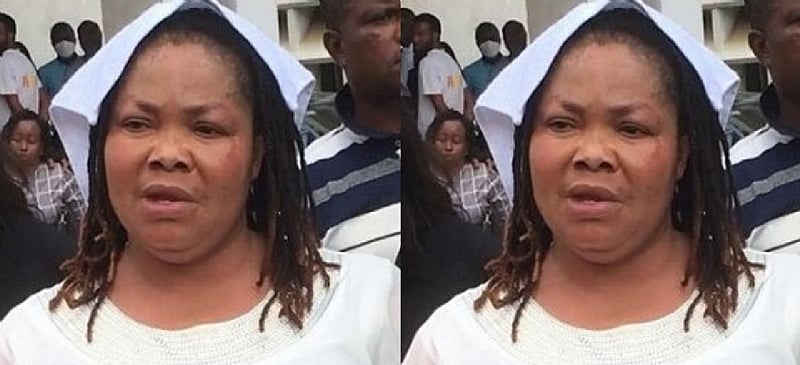The case of Ghanaian televangelist Patricia Asiedua, widely recognized as Agradaa, presents a complex narrative of alleged fraud, legal proceedings, and public reaction. Convicted on July 3, 2025, and sentenced to 15 years in prison for fraudulent activities and deceptive advertising, Agradaa’s case centers on an all-night service where she promised to double the money of her congregants, a promise that ultimately went unfulfilled. Despite the conviction, Agradaa has yet to begin serving her sentence at the Nsawam Female Prison, sparking speculation and highlighting the often-convoluted nature of legal processes.
The delay in Agradaa’s incarceration, according to Ibrahim Kwarteng, CEO of the Crime Check Foundation, is attributed to procedural and administrative requirements that must be completed before a convicted individual is transferred to prison. Kwarteng explained that the timing of Agradaa’s Thursday evening sentencing, immediately preceding a Friday holiday, contributed to the delay. The necessary procedures, including issuing a warrant for her transfer, were thus postponed due to the holiday and the typical administrative slowdown that accompanies such periods. This delay, while standard procedure, fuelled public speculation and rumors regarding Agradaa’s whereabouts and status.
Online rumors claiming Agradaa was assaulted in prison by a victim of her alleged schemes have further complicated the narrative. Kwarteng has categorically refuted these rumors, emphasizing that Agradaa has not yet been transferred to prison and is expected to be moved later in the week, pending the completion of the required administrative processes. This underscores the importance of relying on verified information and avoiding the spread of misinformation, especially in high-profile cases that generate significant public interest.
Agradaa’s husband, Pastor Eric Oduro Asiamah, has publicly expressed his unwavering support for his wife and affirmed the church’s continued operation despite her absence. This statement speaks to the complexities of their personal and professional lives, intertwined as they are with the church and its congregation. The church’s continued operation raises questions about its future direction and the potential impact of Agradaa’s absence on its members and activities.
Public reaction to Agradaa’s sentencing has been varied. Some view the 15-year sentence as unduly harsh, potentially disproportionate to the crime committed. Others believe the sentence is justified, considering the nature of the alleged fraud and the vulnerability of those who placed their trust and finances in Agradaa’s promises. This divergence of opinion reflects the broader societal debate on appropriate punishment for financial crimes and the role of religious leaders in financial matters.
The Agradaa case highlights several crucial aspects of the legal system and public perception. The delays inherent in administrative processes, the rapid spread of misinformation online, and the varied public reactions to sentencing all contribute to a complex and evolving narrative. Agradaa’s eventual transfer to prison, the impact of her absence on her church, and the long-term implications of her conviction will continue to be subjects of public interest and scrutiny. The case serves as a potent reminder of the importance of due process, responsible information sharing, and nuanced public discourse when addressing sensitive legal and social issues.


